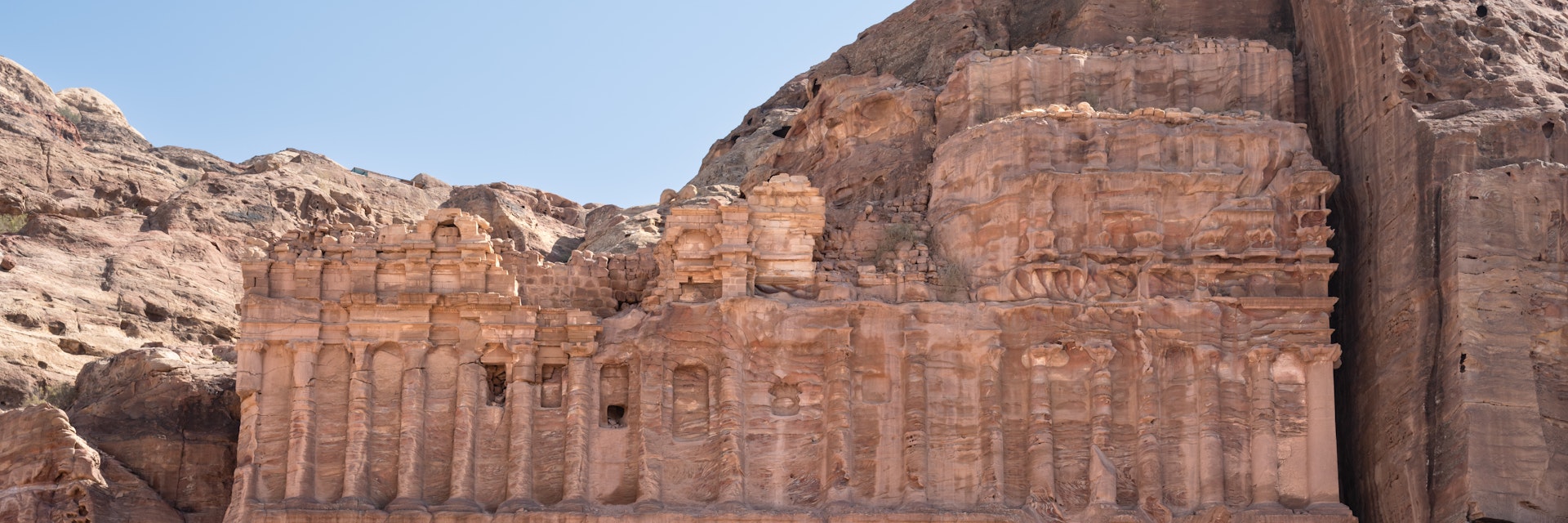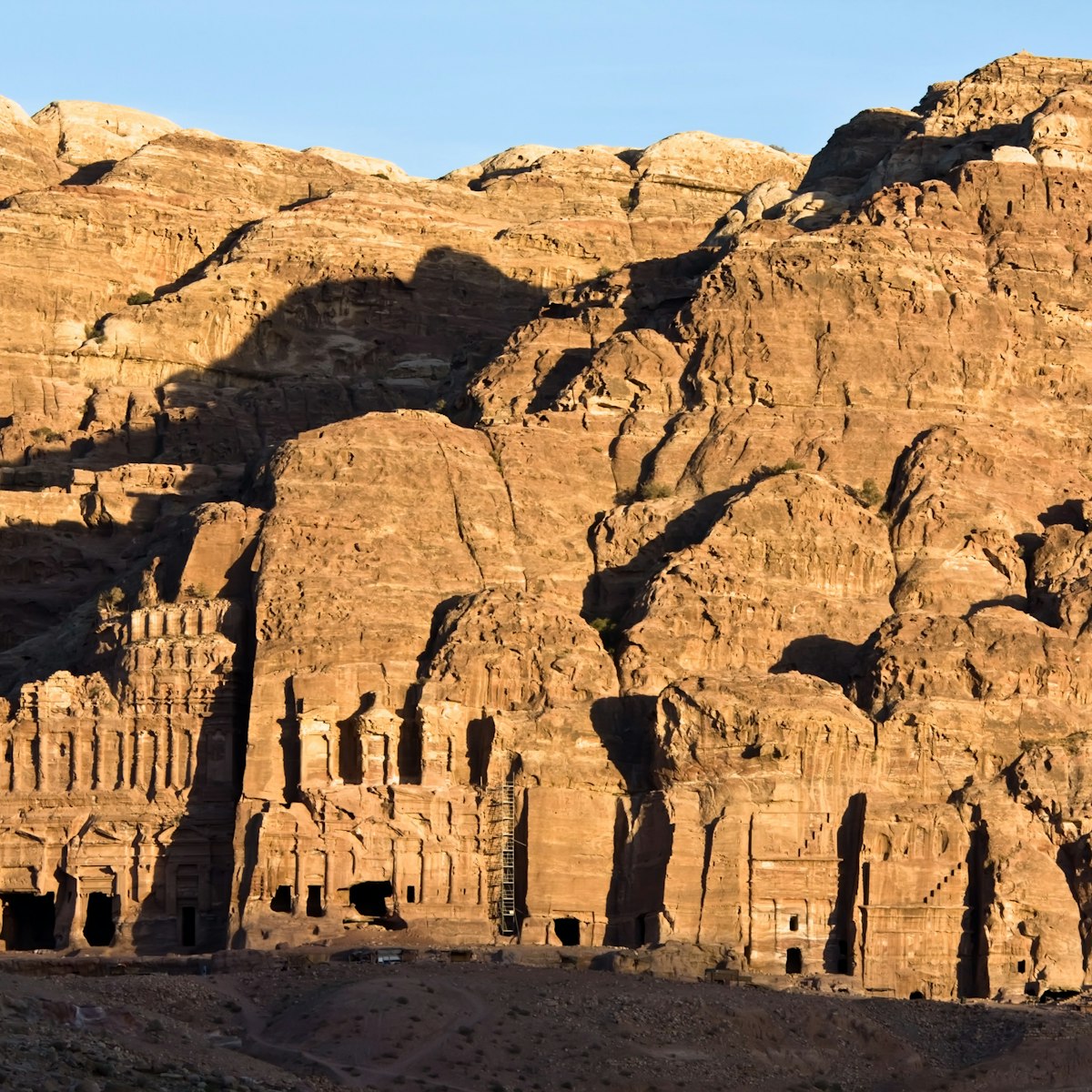The delightful three-storey imitation of a Roman or Hellenistic palace, known as the Palace Tomb, is distinctive among the Royal Tombs for its rock-hewn facade, the largest in Petra. The doors lead into typically simple funerary chambers while the 18 columns on the upper level are the most distinctive and visually arresting elements of the tomb. Notice the top-left corner is built (rather than carved) because the rock face didn’t extend far enough to complete the facade.

© Dietmar Rauscher/Getty Images/iStockphoto
Lonely Planet's must-see attractions

1.15 MILES
The spectacular sandstone city of Petra was built in the 3rd century BC by the Nabataeans, who carved palaces, temples, tombs, storerooms and stables from…

0.55 MILES
The 1.2km Siq, or canyon, with its narrow, vertical walls, is undeniably one of the highlights of Petra. The walk through this magical corridor, as it…

0.43 MILES
The most accessible of Petra’s High Places, this well-preserved site was built atop Jebel Madbah with drains to channel the blood of sacrificial animals…

1.27 MILES
Hidden high in the hills, the Monastery is one of the legendary monuments of Petra. Similar in design to the Treasury but far bigger (50m wide and 45m…

0.29 MILES
Originally built by the Nabataeans (not the Romans) more than 2000 years ago, the Theatre was chiselled out of rock, slicing through many caves and tombs…

26.11 MILES
The Dana Biosphere Reserve is the largest in Jordan and includes a variety of terrain, from sandstone cliffs more than 1700m high near Dana to a low point…

0.14 MILES
The most distinctive of the Royal Tombs is the Urn Tomb, recognisable by the enormous urn on top of the pediment. It was built in about AD 70 for King…

0.25 MILES
Downhill from the Theatre, the wadi widens to create a larger thoroughfare. To the right, the great massif of Jebel Al Khubtha looms over the valley…
Nearby attractions
0.04 MILES
The badly damaged Corinthian Tomb is something of a hybrid, with Hellenistic decorative features on the upper level and a Nabataean portico on the lower…
0.09 MILES
Next to the distinctive Urn Tomb in the Royal Tomb group is the so-called Silk Tomb, noteworthy for the stunning swirls of pink-, white- and yellow-veined…
0.14 MILES
The most distinctive of the Royal Tombs is the Urn Tomb, recognisable by the enormous urn on top of the pediment. It was built in about AD 70 for King…
0.22 MILES
A few hundred metres around the hill from the Royal Tombs is the seldom-visited Sextius Florentinus Tomb, built from AD 126 to 130 for a Roman governor of…
0.25 MILES
At the start of the Colonnaded Street, this public fountain was built in the 2nd century AD and fed by water channelled from the Siq. Little can be seen…
0.25 MILES
Downhill from the Theatre, the wadi widens to create a larger thoroughfare. To the right, the great massif of Jebel Al Khubtha looms over the valley…
0.29 MILES
Originally built by the Nabataeans (not the Romans) more than 2000 years ago, the Theatre was chiselled out of rock, slicing through many caves and tombs…